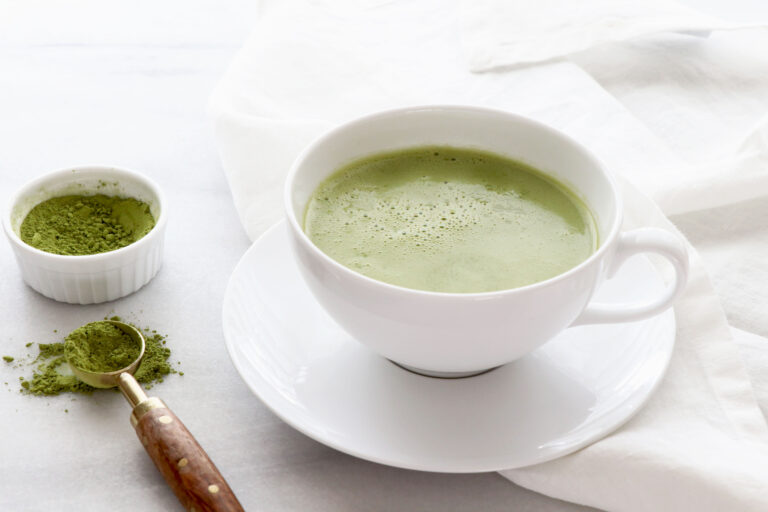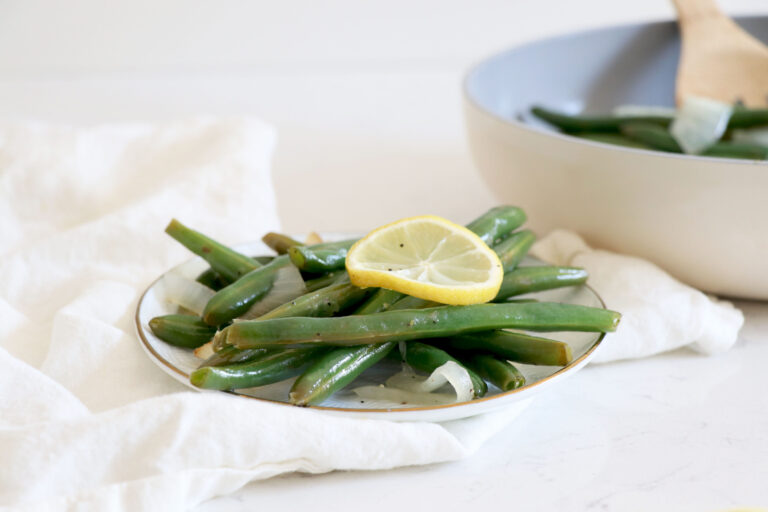Do I Need A Multivitamin If I Eat Healthy?
Having provided nutrition coaching to clients for years, a common question I’ve been asked is, “Do I need a multivitamin if I’m eating healthy?” The tricky part of this question is, “what is healthy?” because a “healthy” diet is going to look different for each person based on their unique body, health status, lifestyle and needs. There is no one-size-fits-all when it comes to nutrition and wellness. Learning your body and what it needs is important to feeling your best, so I thought we’d dive in to address this concept. Supplementation may be a wonderful addition to a person’s wellness plan. As always, I recommend discussing your diet and supplement protocol with your Medical Doctor, Naturopathic Doctor and/or RDN.

What Is A Micronutrient?
Micronutrients are vitamins and minerals that are critical for the body to function. Vitamins for example are important for immune health, blood clotting, energy and more. Minerals are needed to support bone, muscle and heart health, growth and development, as well as help the brain work properly. These are just a few of the many vital and important roles of vitamins and minerals (1).
I Eat Healthy, Do I Need a Multivitamin?
As a Registered Dietitian Nutritionist, I always advocate for aiming to consume your nutrients first from real whole foods. Consuming a varied plant-based diet is an incredible way to nourish our body with macronutrients (protein, fat, carbohydrates) and micronutrients (vitamins and minerals) that the body needs to function. However, no one eats perfectly all of the time and there can be many seasons of life or lifestyle factors that may interfere with access or absorption of proper nutrition. Therefore, supplements can be a wonderful way to fill in the gaps and support our body through times when food alone is not sufficient.
What Can Cause Vitamin and Mineral Deficiency?
Stress
When we are stressed, “it raises the body’s metabolic needs and increases the use and excretion of many nutrients (2)” Four nutrients that can become easily depleted when we are stressed include iron, magnesium, zinc and niacin (vitamin B3). In our fast paced modern world, we all experience stress to some degree. For those that are chronically stressed, this can take a toll not only on our mental health but also on our physical health as well. Therefore, it’s important to be cautious of our diet and supplement intake during times of stress to best support our body.
Soil Degradation
Solaray has an amazing blog post, you can read here, all about how food is sometimes not enough when it comes to meeting our nutritional needs. I love this education excerpt from the blog about our soil and how it affects the quality of our food:
“Fruits and vegetables are only as nutritious as the soil they are grown in, and today’s soil is not nearly as healthy as it used to be, due to commercial farming practices and the effects of climate change. Specifically, nitrogen stores have decreased by 42%, phosphorus by 27%, and sulfur by 33%; plants need these nutrients for optimal growth and to produce vitamins, amino acids, and enzymes.
In fact, because of erosion, we are losing nutrient-rich topsoil (the uppermost soil layer in which nearly all the food we eat is grown) at 10-1,000 times the rate at which it can be replenished. A recent paper out of the University of Massachusetts Amherst reported that more than one-third of the Corn Belt in the Midwest—spanning nearly 30 million acres of farmland—has lost its topsoil entirely.
As a direct result, the produce we eat today is not as nutritious as the produce our grandparents ate. A landmark 2004 study published in the Journal of the American College of Nutrition compared modern garden crops to those grown in 1950. Its findings? An up to nearly 40% decline in vital nutrients—from Vitamin C to Calcium, Iron, Riboflavin, and more—among 43 different types of produce. Other research has yielded similar results, including a study that showed it is not just vegetables that are losing nutrients but grains, too, finding the magnesium concentration in wheat has decreased up to 29% (3).”
Quality of Food
It only takes one trip to the grocery store or a drive through town to see the large variety of packaged convenience foods or fast food options available today. While I love a good grocery find that makes it easier to eat well, it really can take time to learn about ingredients and read ingredient lists to ensure the convenience item is truly nutritious. There are many processed packaged foods that are calorically dense yet lacking in real nutrients whether it’s adequate protein, fiber, quality fats, vitamins or minerals. I’ve always been a fan of the 80 / 20 rule where 80 percent of the time a person is consuming real, whole, nutrient dense foods and 20 percent of the time we leave room for treats or other less nutritious items that bring us joy. However, over 55 percent of the Standard American Diet is processed food (4), which lacks the quantity and quality of nutrients our body needs to optimally function and thrive.
Common Nutrient Deficiencies
The majority of Americans do not follow a healthy eating pattern (5). While nutrient deficiencies will vary per person, the following are 6 common nutrient deficiencies. Diet plus supplementation may be needed to meet the recommended intake of the following:
- Vitamin D
- Iron
- Vitamin B12
- Iodine
- Calcium
- Magnesium

5 Ways To Meet Optimal Nutritional Intake of Vitamins and Minerals
- Aim to consume 80 percent or more of your diet from real, whole, plant-rich foods such as fruits, vegetables, nuts, seeds, legumes, grains, herbs and spices.
- Choose a quality liposomal multivitamin such as Solaray to fill in nutrient gaps.
- Speak with your healthcare professional to complete blood work to assess for nutritional deficiencies and create a dietary plus supplement protocol, as needed.
- When possible, visit a Farmer’s Market or grow your own food to consume foods grown in better quality soil.
- Find ways to manage and reduce stress such as mediation, journaling, prayer, movement, listening to music, gardening, music and more.
Getting Started With A Multivitamin:
A good place to start when it comes to taking a supplement is with a multivitamin, which will ensure you’re consuming a wide variety of both vitamins and minerals. When it comes to selecting a multivitamin, one option is a multivitamin with sufficient absorption. Solaray, one of the original vitamin brands and most trusted sources for supplements, recently created an industry-first Liposomal Multivitamin collection for various life stages, designed to deliver enhanced absorption**. They are also odor-neutral compared to other multivitamins, and are gentle to digest.

What is a Liposomal Vitamin?
Liposomes are small bubbles of phospholipid (fats) that surround 100% of the nutrients in a layer of protection, helping ensure they survive the harsh stomach environment to actually reach and be used by cells.** Solaray Liposomal Multivitamins are expertly crafted to offer enhanced absorption and superior bioavailability.**
Solaray Liposomal Multivitamins are a great way to fill in nutrient gaps because we’ve learned sometimes food is not enough. The new line includes four formulations Universal, Women’s, Women’s 50+ and Men’s. Each high-potency formulation offers at least 30 different nutrients, with 18 or more vitamins and minerals at or over 100% of the Daily Value, to help bodies keep feeling and performing at their best.*
Like all Solaray products, every raw material in these new formulas is quality tested to the most stringent standards, from start to finish, to ensure the identity, potency and purity to help you Live Brighter and embrace the moments that matter the most!
If you’re interested in trying Solaray’s newest innovation, you can try it risk-free for 60 days and get 20% off using code GETMORE20 at checkout here.

Final Thoughts From This RDN!
Personally, I eat a diversified plant-rich diet so I know I am consuming a wide variety of nutrients. However, I also know that stress takes a serious toll on my health. The combination of running a business, years of growing, birthing and caring for babies, homeschooling and the general pressures of doing life in our fast paced world all have affected my health. I personally feel so much better, have more energy and my bloodwork results are more optimal when I’m adding in quality supplements, such as Solaray Liposomal Multivitamin, in addition to a really nutritious diet.
Your health matters and it’s worth diving into, to learn what your body personally needs to thrive so you can be the best version of yourself! Wishing you health on your wellness journey and as always, if you have any questions, you can contact us here!
*These statements have not been evaluated by the Food and Drug Administration. These products are not intended to diagnose, treat, cure or prevent any disease.
** Based on clinical studies on Vitamin C and B12 by Cellg8® (a registered trademark of CELLg8®).
Disclosure: This post is sponsored by Solaray
Sources:
- https://www.health.harvard.edu/nutrition/the-truth-about-nutrient-deficiencies
- https://www.hsph.harvard.edu/nutritionsource/stress-and-health/
- https://solaray.com/blogs/stories/why-food-is-not-enough
- https://www.ncbi.nlm.nih.gov/pmc/articles/PMC6146358/
- https://lpi.oregonstate.edu/mic/micronutrient-inadequacies/overview





